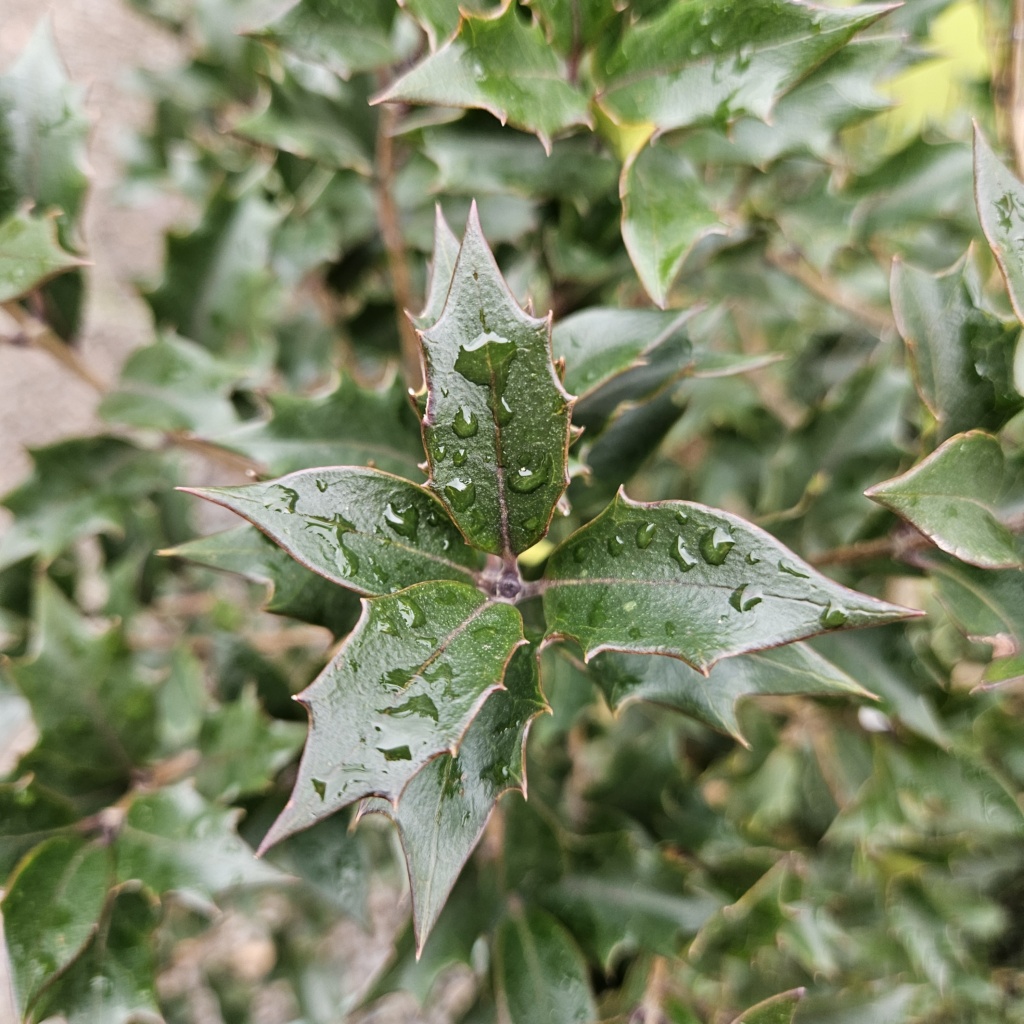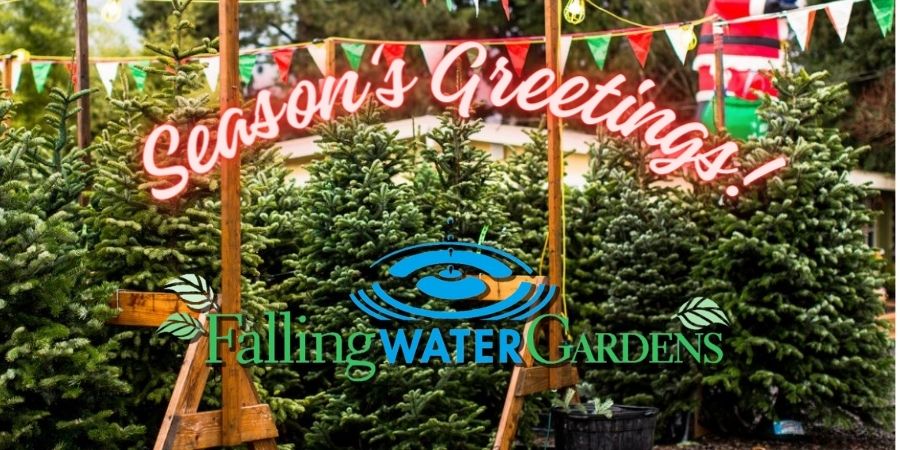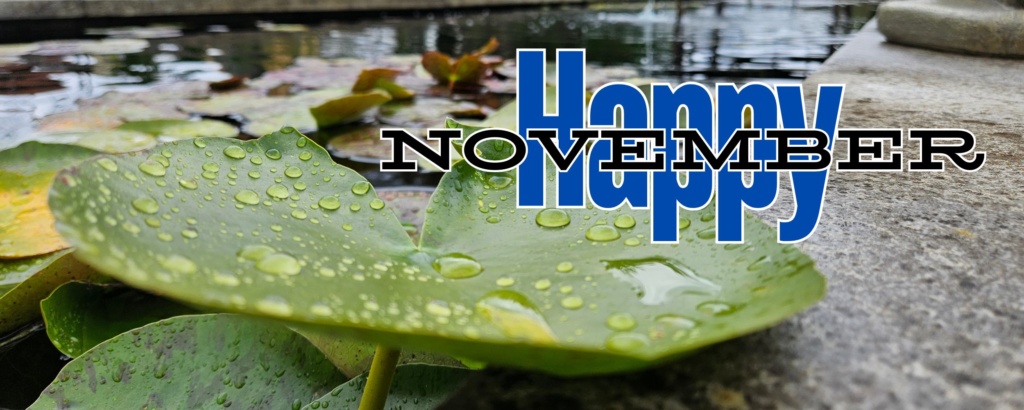
Shop local in Monroe!
The holidays are almost here! It’s another great chance to shop local in Monroe this year and support a small business. We have holiday-themed gifts available at the shop! If you’re on the hunt for a unique gift for a gardener in your family or need a gift for a housewarming party or holiday gathering, come visit us at Falling Water Gardens for ideas!
We’ve sold Christmas Trees for over a decade here at the nursery, and we’re planning for another busy year.
Trees will be for sale starting Sunday, Nov. 24. We will be closed on Thanksgiving Day to allow our employees to spend time with their families, but will reopen at 10 a.m. on Friday, Nov. 29. We will be open 10 a.m. to 5 p.m. seven days a week through Christmas Eve!
Why buy your Christmas tree from us?
– Support a local business!
– Trees are cut as soon as they arrive and placed upright in fresh water. This ensures that your trees are hydrated and healthy when you take them home.
– Gorgeous selection of fresh Nordmann, Noble, & Grand fir trees.
– 4′ up to 10′ tall!
We have a great product to help preserve your Christmas Tree. Developed by Oregon Forestry Laboratory, the ingredients help the needles stay on longer & the tree stay fresh. The gel in it prevents the water in the tree stand from drying up.
HOURS OF OPERATION NOTICE
We are currently operating on Fall Hours: open Friday, Saturday, Sunday, Monday from 10 AM to 5 PM; Closed Tuesday-Thursday, except by appointment only
We will switch to Holiday hours on Friday, November 30th. We’ll be open seven days a week, from 10 AM until 6 PM through Christmas Eve.
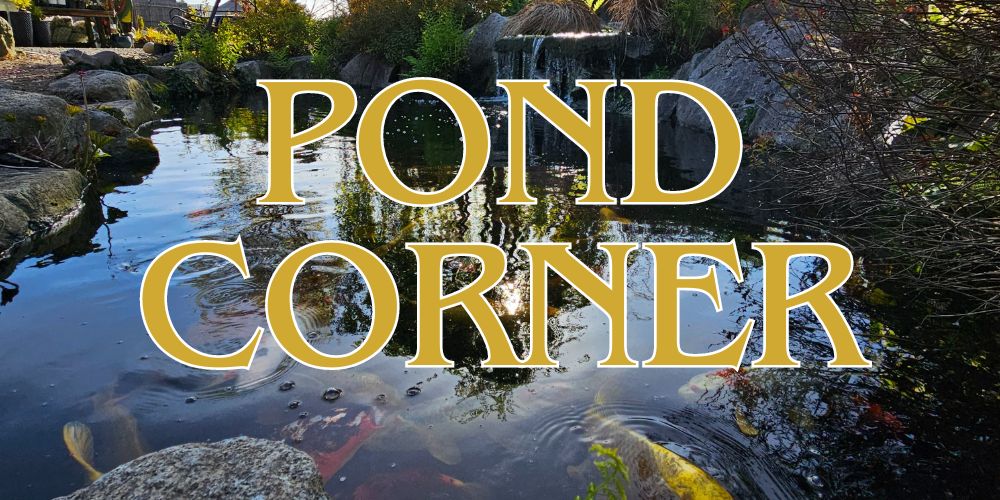
As usual, we’ve been busy rebuilding and refurbishing ponds for customers over the last few months. Let’s take a look at a few recent projects!
These Lynnwood customers had a pond that they didn’t love. It was too shallow to protect Koi from the heron and it didn’t have a stream or waterfall of any kind. We dug the pond 4’ deep and installed a 40’ long stream/waterfall along the side of their home into the pond.
New equipment includes a skimmer, out-of-pond pump, filter-fall, bead filter, large UV sterilizer and pond lighting. The project was completed in five days.
These Everett customers are long time nursery customers. As so often happens, they filled their small Koi pond with fish and wanted to give them a larger home and be able to add to their collection.
We enlarged their pond greatly, improved the edging of the pond to make it look more natural and added a short waterfall/stream that aims toward the house so they can see if from inside.
We also added a destination flagstone patio at the pond edge for them to enjoy the new pond. The project includes a new pump, skimmer, filter-fall, large UV sterilizer and bead filter along with pond lighting. This project took four days to complete.

Showa
Our featured Koi in November is the wonderful Showa variety! We’re not currently selling fish because the temperature is too low, but we’ll have them for sale again in the spring!
Showa are black fish with red and white markings. There must be red and black markings on the head. Showa are known for their vibrant Hi (red) and the proportionate Sumi (black) and Shiroji (white). The markings on these beautiful fish resemble thoughtful brush strokes.
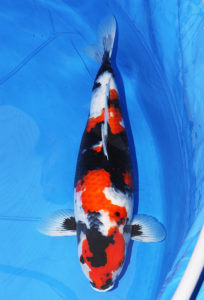
Should I be feeding my fish?
Fish are cold blooded animals. This means they do not generate their own body heat and their body temperature is reliant on their environment, the water temperature of your pond.
When the water temperature is cold, below the mid 50’s, your fish conserve energy by hanging out at the bottom of the pond, where the water is warmest. At this temperature your fish cannot generate the enzymes necessary to digest food and they live off the fat they stored on their body all summer.
Between 55 and 65 degrees, it is safe to feed cool season food. Cool season food has less protein and is easier for your fish to digest in cool temperatures.
Above 65 degrees your fish are much more active and you should feed your fish a high protein food.
A warm winter where the water hovers around 50ºF to 55ºF can be a problem for fish owners. Our fish are more active than usual and seem to be asking to be fed. There are two potential problems with feeding your fish at this temperature.
As previously mentioned, if you feed your fish and the temperature drops below the mid 50’s, your fish are most likely unable to create the enzymes necessary to digest the food. The food can putrefy in their intestinal track, creating bacteria that can get in their blood and kill your fish.
A secondary problem is that at low temperatures, your biological filter will not be active and able to cope with increased ammonia levels associated with feeding the fish. You can kill your fish if the ammonia levels rise too high.
Koi and goldfish are omnivores and can usually find enough to eat at the beginning of the season. If they are hungry they can eat the algae growing in the pond that is easier to digest than fish food.
Our suggestion to fish owners is always the same; when the water temperature is hovering in the mid to low 50’s and there is a chance that we can get freezing weather that can drop the water temperature below the mid 50’s, it is best to not feed the fish. Just to be on the safe side!
** We are no longer feeding our fish. **
Plant Material
Remember that lettuce and hyacinth are annuals in the pond and need to be removed before they turn to mush and sink to the bottom. It’s also a good idea to to turn your UV sterilizer off for the winter. You can do this by unplugging it. The light bulbs in the UV are only good for 365 days. If turned off by winter you can get two springs out of one bulb.
Pond Winterization
When the water temperature reaches 45 degrees, most of the bacteria in your bead filter dies back. It’s then safe to drain and clean the filter.
Prepare Your Bead Filter
As leaves and pine needles begin to fall, it’s also a good idea to go into winter with a clean skimmer. Complete cleaning instructions can be found at Cleaning Your Skimmer.
Netting Your Pond
Read how to winterize your pond here.
Paying attention to these important tasks will ensure that your expensive filter equipment continues to work properly!
Finally, if this all seems like too much work, Falling Water Designs offers Fall Prep as part of our Maintenance Plan. Click here to fill out our service request form so we can schedule your fall maintenance.
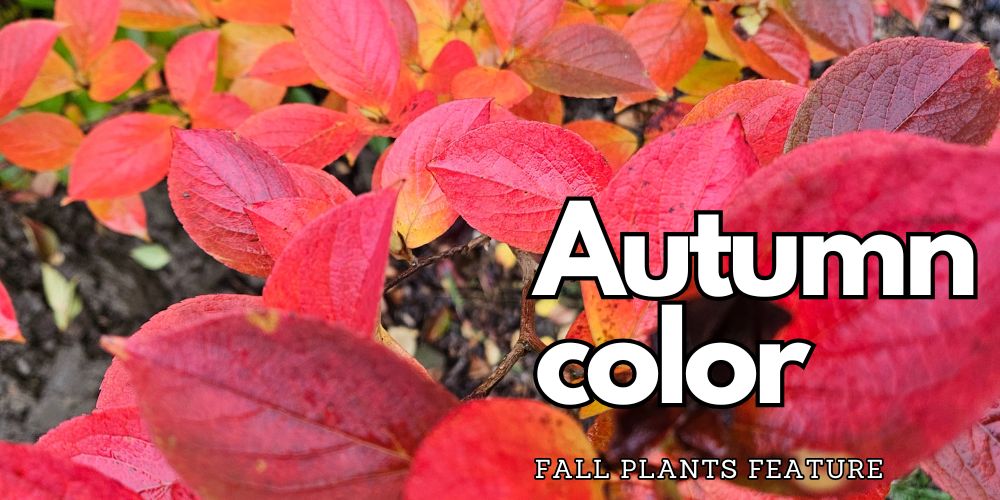
Ferns
Now that we’re headed into winter, the best color to add to your garden is green! Ferns make a great addition to a garden space because of their beautiful lush coloring year-round, and we have several varieties of ferns for purchase here at the garden center.
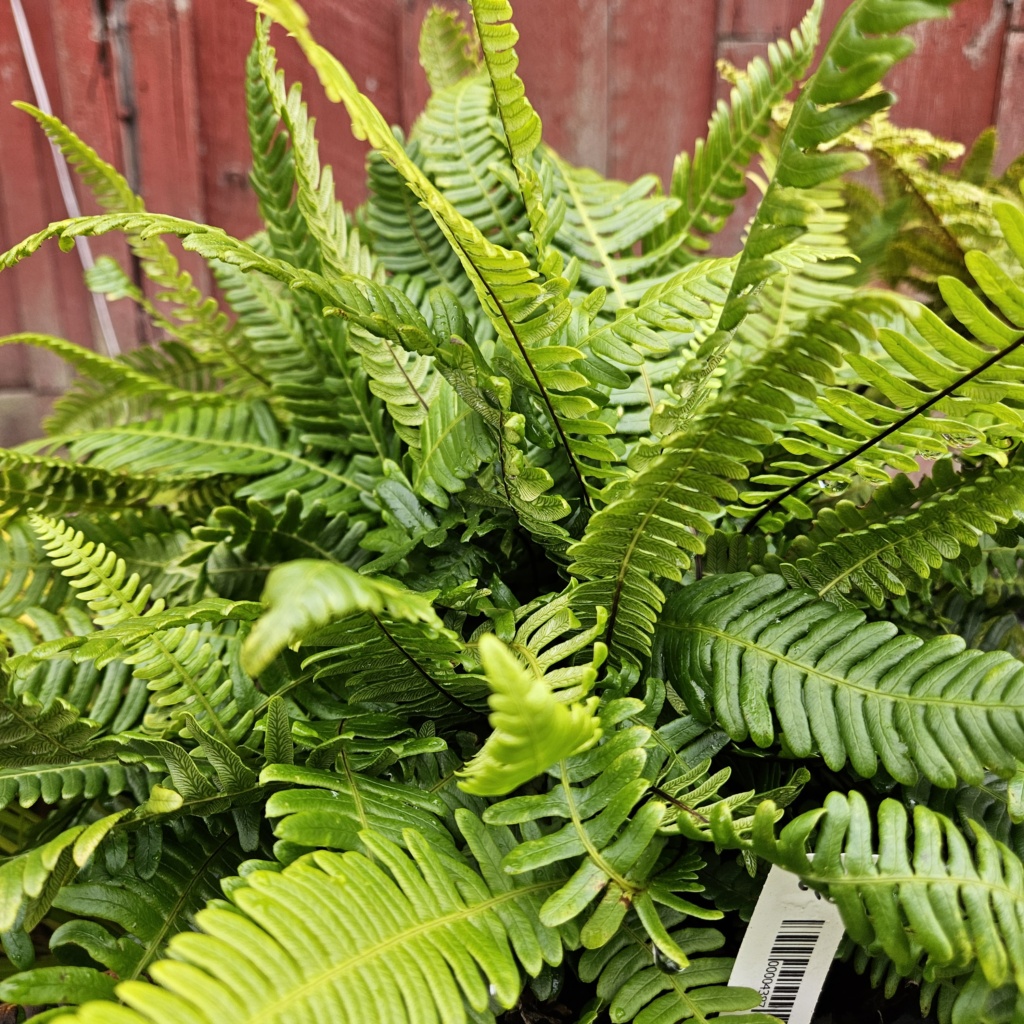
Osmanthus Pupurea
Dense shrub with dark purple new growth. Slow to moderate growth rate, to 10′. Best color in full sun, but tolerates shade.
Commonly known as holly osmanthus or false holly, is an evergreen shrub prized for its glossy, spiny leaves that resemble holly. It blooms in late summer to fall, producing small, fragrant white flowers. This versatile plant can grow as a hedge or specimen, tolerates a variety of soils, and thrives in partial shade to full sun. Its aromatic blooms attract pollinators, making it a wonderful addition to gardens.
